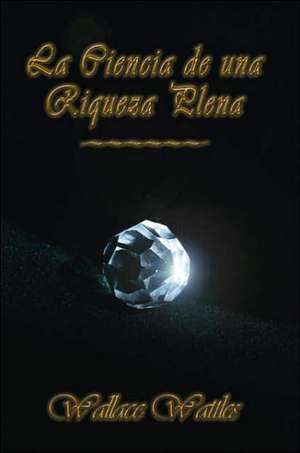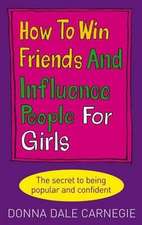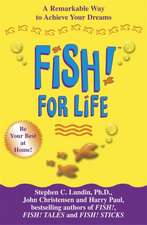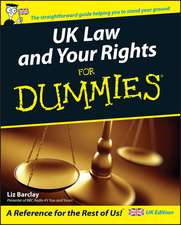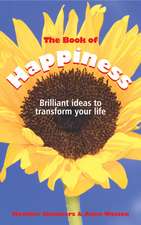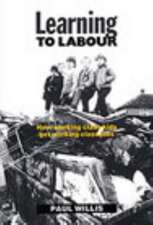La Ciencia de Una Riqueza Plena
Autor Wattles, Wallace D.es Limba Spaniolă Paperback
Quizas, paradojicamente, usted esta trabajando ahora aun mas duro que antes al creer, logicamente, que eso es lo que realmente se requiere para acceder y disfrutar de una vida merecida de abundancia plena. Sin embargo, es indispensable que tome muy en cuenta lo siguiente...
"Ser dueno de dinero y de propiedades viene como resultado de hacer las cosas de una cierta manera. Aquellos que hacen las cosas en esta cierta manera, bien a proposito o accidentalmente, se enriquecen. Aquellos que no hacen las cosas de esta cierta manera, sin importar cuan duro trabajen o cuan capaces sean, permaneceran pobres."
Wallace D. Wattles,
La Ciencia de una Riqueza Plena, Capitulo 2
Este impresionante y sencillo clasico -escrito originalmente en ingles por el Sr. Wallace D. Wattles en el ano 1910- muestra claramente la razon por la cual el tener expectativas pobres o solo "posibles" y basadas en experiencias pasadas crea resultados pobres. Wattles ensena a eliminar situaciones que normalmente causarian preocupacion y angustia debido a la aparente "escasez"; pues demuestra clara y cientificamente que al adquirir el habito de pensar, hablar y actuar de una "cierta manera," ustedinevitablemente saca a relucir su maximo potencial creador y podra atraer sus mas anhelados deseos como un iman . Asimismo, muy especialmente revela como la palabra fe puede verdaderamente ser parte de usted y de su utilidad absoluta para siempre, dejando de ser asi algo mistico y especial que solo los poderosos maestros son capaces de usar.
Estimado amigo: estas leyes trabajan tan ciertamente como sumar 2+2, y existen tal como existe la "ley de la gravedad," independientemente de si nos damos cuenta de que estan alli o no. Ellas funcionan mucho mas rapidamente cuando usted tiene una imagen mental clara de lo que real y profundamente desea en su corazon.
Lo invitamos a disfrutar del viaje de abundancia en su propia vida, mientras va siguiendo los pasos del bestseller del Sr. Wallace Wattles durante su tiempo libre, y usted vera como poco a poco, y de las formas mas inesperadas e interesantes, su vida ira llenandose de serenidad, aventura, entusiasmo, pasion, buena salud, amor y, sobre todo, mucha prosperidad
Preț: 79.46 lei
Nou
Puncte Express: 119
Preț estimativ în valută:
15.20€ • 16.57$ • 12.81£
15.20€ • 16.57$ • 12.81£
Carte disponibilă
Livrare economică 02-16 aprilie
Preluare comenzi: 021 569.72.76
Specificații
ISBN-13: 9781412088855
ISBN-10: 1412088852
Pagini: 123
Dimensiuni: 152 x 229 x 7 mm
Greutate: 0.19 kg
Editura: Troubador Publishing
ISBN-10: 1412088852
Pagini: 123
Dimensiuni: 152 x 229 x 7 mm
Greutate: 0.19 kg
Editura: Troubador Publishing
Notă biografică
Wallace Delois Wattles (1860-1911) was an American New Thought writer. He remains personally somewhat obscure, but his writing has been widely quoted and remains in print in the New Thought and self-help movements. As a Midwesterner, Wattles traveled to Chicago, where several leading New Thought leaders were located, among them Emma Curtis Hopkins and William Walker Atkinson, and he gave "Sunday night lectures" in Indiana; however, his primary publisher was Massachusetts-based Elizabeth Towne. He studied the writings of Georg Wilhelm Friedrich Hegel and Ralph Waldo Emerson and recommended the study of their books to his readers who wished to understand what he characterized as "the monistic theory of the cosmos."
Through his personal study and experimentation Wattles claimed to have discovered the truth of New Thought principles and put them into practice in his own life. He also advocated the then-popular health theories of "The Great Masticator" Horace Fletcher as well as the "No-Breakfast Plan" of Edward Hooker Dewey, which he claimed to have applied to his own life. He wrote books outlining these principles and practices, giving them titles that described their content, such as Health Through New Thought and Fasting and The Science of Being Great. His daughter Florence recalled that "he lived every page" of his books. A practical author, Wattles encouraged his readers to test his theories on themselves rather than take his word as an authority, and he claimed to have tested his methods on himself and others before publishing them.
